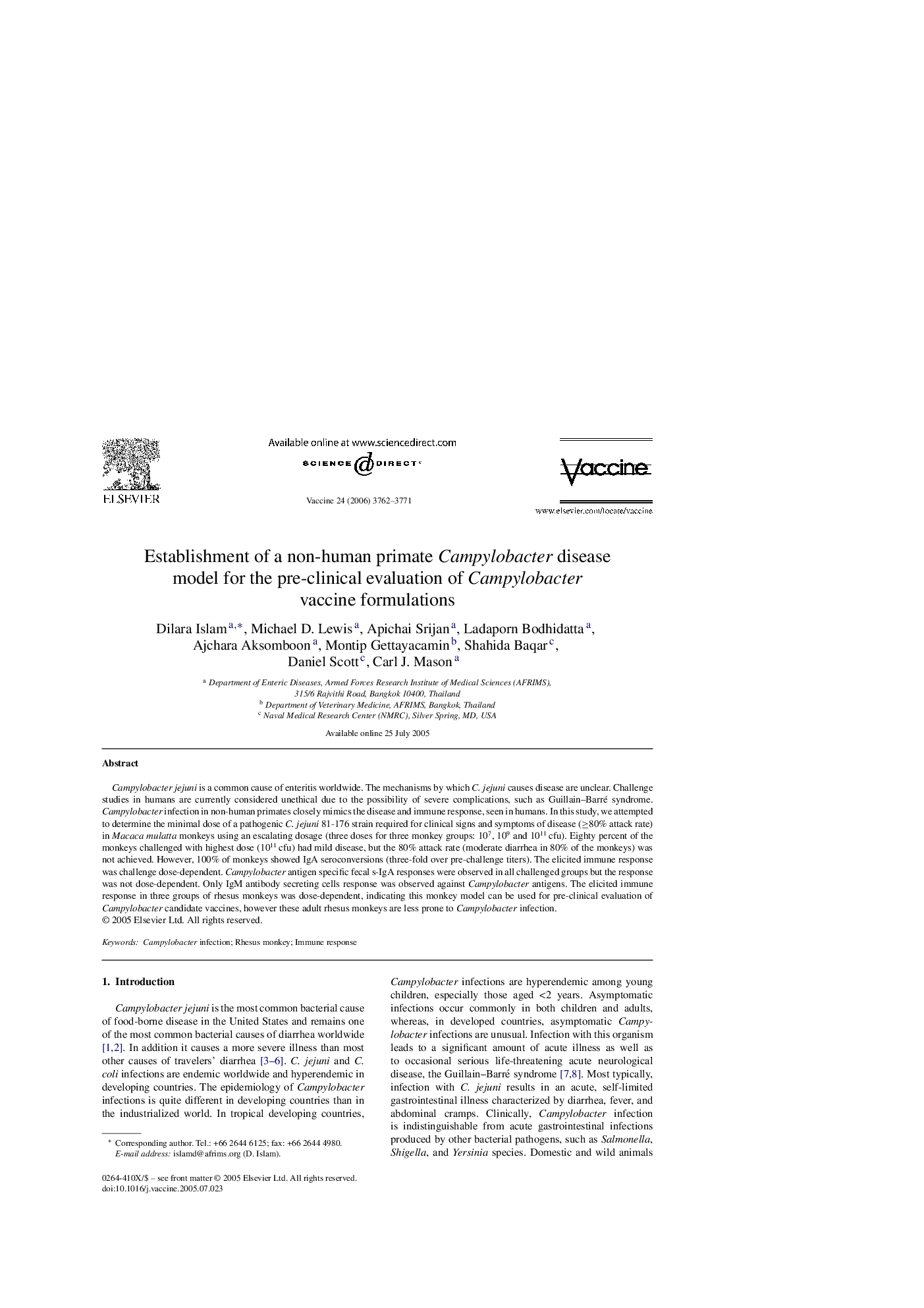| Article ID | Journal | Published Year | Pages | File Type |
|---|---|---|---|---|
| 2409273 | Vaccine | 2006 | 10 Pages |
Campylobacter jejuni is a common cause of enteritis worldwide. The mechanisms by which C. jejuni causes disease are unclear. Challenge studies in humans are currently considered unethical due to the possibility of severe complications, such as Guillain–Barré syndrome. Campylobacter infection in non-human primates closely mimics the disease and immune response, seen in humans. In this study, we attempted to determine the minimal dose of a pathogenic C. jejuni 81-176 strain required for clinical signs and symptoms of disease (≥80% attack rate) in Macaca mulatta monkeys using an escalating dosage (three doses for three monkey groups: 107, 109 and 1011 cfu). Eighty percent of the monkeys challenged with highest dose (1011 cfu) had mild disease, but the 80% attack rate (moderate diarrhea in 80% of the monkeys) was not achieved. However, 100% of monkeys showed IgA seroconversions (three-fold over pre-challenge titers). The elicited immune response was challenge dose-dependent. Campylobacter antigen specific fecal s-IgA responses were observed in all challenged groups but the response was not dose-dependent. Only IgM antibody secreting cells response was observed against Campylobacter antigens. The elicited immune response in three groups of rhesus monkeys was dose-dependent, indicating this monkey model can be used for pre-clinical evaluation of Campylobacter candidate vaccines, however these adult rhesus monkeys are less prone to Campylobacter infection.
